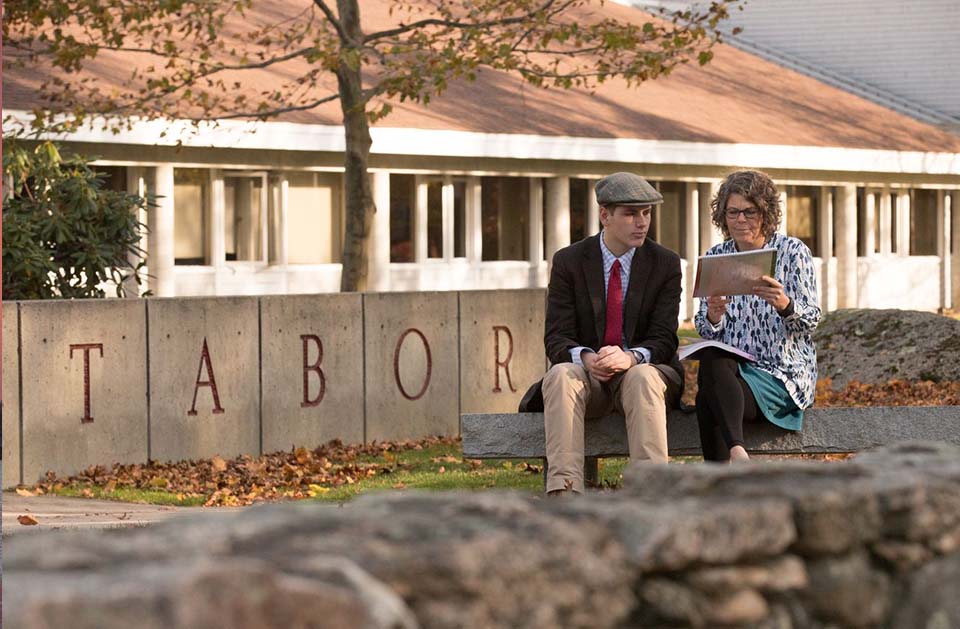There’s something about August that incites the back-to-school jitters in me. I clean and organize my desk, buy school supplies, and dig deeper into writing and meeting planning.
Lauren Boucher, Associate Director of College Counseling
Recent Posts
Here’s What You Need to Know About the Common App’s Activities Section
Topics: College Counseling
Summertime College Visits: Advice From Our Colleagues in College Admissions
It’s the time of year when I start asking the juniors I work with what their plans are for the summer.
Topics: College Counseling
The Uncomfortable, Frustrating College Waitlist and What to Do If You’re On One
At this point, college decisions are almost all in and some students have been placed on the waitlist. It must feel something like “I want to date you, but I’d like to see how this other person responds to my request to go out before I commit to you.” What? That doesn’t feel fair.
Topics: College Counseling
Test Optional: College Admissions in the Time of Covid-19
A year ago, my colleague Mary Kate McCain and I had just arrived back at Tabor following a week-long tour of colleges and universities in Louisiana and Texas, which we went on in early March. We knew about COVID-19, but the idea of it becoming a pandemic hadn’t really struck home for the majority of Americans. I remember looking at an infographic on my phone once we were seated on a flight heading from Boston to New Orleans, announcing to Mary Kate that there were 11 known cases of COVID in Texas. Eleven. What a difference a year makes. On the college counseling front, the past year has felt a little bit like the wild west, but both college admission and college counseling offices have adapted. Changes include virtual college rep visits and interviews, the offering of an optional prompt on the Common Application related to the impact of COVID-19, and major changes in the world of standardized testing, the most dramatic change being the surge of the test optional movement.
Topics: College Counseling
Important Lessons Shared by College Admission Pros
Whether you’re new to the college process or a seasoned veteran, there’s always something to learn, especially in these topsy-turvy times. That’s why it’s important to hear from our colleagues at colleges and universities around the US to help us stay current. Tabor’s College Counseling Office invited four admission professionals to share some thinking with us for the Junior Family College Kickoff on December 2. Our guests were Deanna Dixon, Dean of Admission at Smith College in Northampton, MA; Bob McCullough, Director of Undergraduate Admission at Case Western Reserve University in Cleveland, OH; Amy Cembor, Senior Associate Dean of Admission at Providence College in Providence, RI; and Chris Gruber, Dean of Admission and Financial Aid at Davidson College in Davidson, NC.
Topics: College Counseling
College Office Shares a Blog from Tulane Admissions
Tabor’s college counseling team wanted to share this blog post by Jeff Schiffman, director of admissions at Tulane.
Topics: College Counseling
Student Engagement at College Trumps College Selectivity
Here’s a crazy statistic: Seventy-five percent of the applicants to Stanford are admittable. However, only five percent of these applicants receive a “You’ve been admitted!” letter or email.
Topics: College Counseling
Early Decision II Offers a Gift: Time
Early Decision II. What makes it unique and sets it apart from other college application deadlines? First, there are just under 100 colleges that offer ED II as an option. Second, the ED II deadline for the majority of these colleges is in early to mid-January, giving students the gift of time -- time to visit colleges, to improve test scores, and to make decisions. In this scenario, a student will likely be applying to an ED II college, along with filing their regular decision applications. The difference is that students applying ED II will hear back from their ED II college in early to mid-February as opposed to March. Remember though, ED II is like its big sister ED I in that the language around commitment to the ED II school is the same -- ED II is binding and requires a non-refundable deposit in short order should a student be accepted. Besides students who simply need a couple of extra months to pull necessary application materials together, others may apply ED II if they have been deferred or denied admission to their top choice school and as a result are strongly committed to attending an ED II school as their next best option.
Topics: Tabor Academy, College Counseling
















